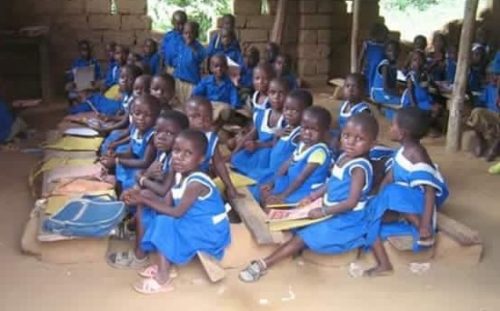By Sulaiman Aruna Sesay
Education is the cornerstone of any developing nation. Access to quality education is crucial as it helps to bridge the gap between societies, improves economic growth and enables a country to compete well in the global market..Education plays a fundamental role in transforming a person, and ultimately a country’s socio-economic status. In Sierra Leone, access to quality education remains a significant challenge for many citizens.
Sierra Leone is a West African country that has suffered from years of war, followed by an Ebola outbreak in 2014 and the COVID-19 in 2020. The country has made significant efforts in restoring specific sectors such as education, but the progress has been slow. The country has some of the poorest educational and literacy rates in the world, which can be attributed to a lack of resources, poor infrastructure, inequalities, and other factors.
The lack of resources is a significant impediment to quality education in Sierra Leone. The government has been working hard to increase the budget for education. The percentage of the national budget allocated to education is still inadequate. The government’s allocation in recent years of around 20% of the national budget towards education is low compared to UNESCO’s recommendations of at least 26%. The lack of resources has led to poor staffing, inadequate learning facilities and materials, and low compensation for teachers.
The poor infrastructure in rural areas has made access to quality education a distant dream for many. Schools in rural areas lack basic facilities such as classrooms, desks, textbooks, and adequate sanitary systems. Students in these areas are forced to learn under trees while exposed to harsh weather conditions. Inadequate infrastructure and facilities also make it hard for schools to attract qualified and competent staff, leaving students with low-quality education.
There is a significant inequality in the provision of quality education, with girls being the most affected. Gender inequalities are prevalent in Sierra Leone, and cultural norms have seen girls often prioritized for early marriage instead of schooling. As a result, the number of girls attending school is far lower than boys. This has led to Sierra Leone having one of the highest rates of illiteracy among women worldwide. Many girls also fall pregnant and drop out of school due to inadequate sexuality education.
The coronavirus pandemic further aggravated the situation, making it harder for children to access quality education. There was a nationwide school closure in 2015 due to the Ebola outbreak, which meant that Sierra Leonean’s pupils missed a significant part of their education. Education is a continuous process, and the suspension of learning for a long period has far-reaching consequences on the country’s development and future.
The lack of access to quality education in Sierra Leone is detrimental to the country’s economic growth and social development. Improving access to quality education can achieve a progressive reduction in poverty and increase life expectancy as it increases the country’s human capital. There is a need for a multi-faceted approach to address the challenges of access to quality education. Such measures would include government investment in education, creating policies which support girl child education, and supporting students learning in rural areas.
Access to quality education remains a significant challenge in Sierra Leone. The government must increase its budget allocation towards education while collaborating with international development partners to assist in improving the sector. Addressing the challenges of access to quality education will go a long way in transforming Sierra Leone’s economic and social status, enhance opportunities, and empower its people. It is time for the government, civil society, and other stakeholders to work hand in hand to ensure that every Sierra Leonean has access to quality education.













